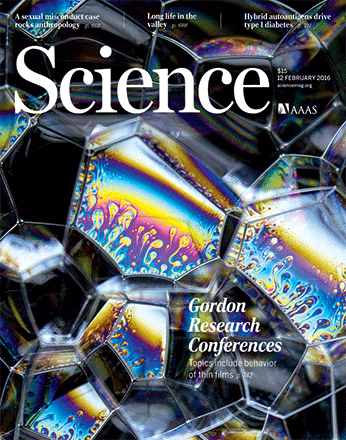Last Friday, February 12, the very first national survey on the teaching of climate change in U.S. middle and high schools, was published in Science magazine. I couldn’t be prouder! The results of this survey will guide not only NCSE’s work  defending the integrity of the science classroom, but also the efforts of the many dedicated groups that are working to ensure that the next generation is equipped to make informed decisions about climate change. And I can say unequivocally that this survey would never have happened without NCSE, its members and donors, its talented staff, and the enthusiastic partnership of a world-class collaborator.
defending the integrity of the science classroom, but also the efforts of the many dedicated groups that are working to ensure that the next generation is equipped to make informed decisions about climate change. And I can say unequivocally that this survey would never have happened without NCSE, its members and donors, its talented staff, and the enthusiastic partnership of a world-class collaborator.
When I arrived at NCSE two years ago, the decision to add climate change to our mission was just a few years old. We had anecdotal evidence, and some good, but not national, survey data, suggesting that efforts to cast doubt on the overwhelming scientific evidence of climate change were seeping into science classrooms. We had lots of ideas about how we might help teachers, encourage parents to advocate for climate education, develop curricular materials, and more. But we kept running up against big questions: What was actually going on out there in science classrooms? How many teachers were incorporating climate change into their classes? Were they facing pressure to skip it, or teach “both sides”? We couldn't make sound strategic decisions without answers to these fundamental questions.
The obvious answer was to do a genuinely representative, national survey. And the obvious partner was Eric Plutzer of Pennsylvania State University who, with Michael Berkman, had carried out a groundbreaking national survey on the teaching of evolution. We contacted Eric and he signed on immediately.
Just one problem. Surveys are not cheap. Doing it right would cost well over $100,000. So I set out to raise the money. Fortunately for all of us, the need for such a survey was immediately apparent to some of our most generous donors. One of our board members, Lorne Trottier, donated $75,000; another, Francisco Ayala, donated $25,000. A Wallace Global Fund Foundation [AR2] grant of $25,000 to NCSE’s climate change program put us over the top.
Once the funding was in place, a lively and productive collaboration began among Eric, his colleague, Lee Hannah, and several NCSE staff members including former staffer Mark McCaffrey (whose encyclopedic knowledge of what a good climate change education should look like was invaluable, and who also kept the trains running on time), Minda Berbeco (with her deep content knowledge, and extensive, hands-on experience with real-live teachers), Josh Rosenau (who actually understands all the statistics behind survey design and analysis), and myself (who mostly just asked a lot of questions). It was a team effort characterized by lots of enthusiasm and zero drama.
Once the survey results were in, and the first journal article was written up, shepherded through the review process at Science, and finally, accepted, a couple of other people got involved. Steve Newton designed an elegant supplemental report that details the results for each question on the survey-watch for it on our website soon. Robert Luhn, NCSE’s Communications Director, coordinated a plan to ensure that you’ll be hearing and reading about the survey all over the place.
Part of NCSE’s strength comes from the incredible and diverse talents of its staff, part from the collaborators who partner with us, and part from the members and donors that make our work possible. This first-ever, nationally representative survey of climate change education, is a prime example of how those strengths can come together to create something unique and vitally important. Kudos and thanks to everyone involved.
Over the next few days, Minda, Josh, and Eric will be telling you more about the survey’s results and implications. Be sure to visit every day to learn more.

